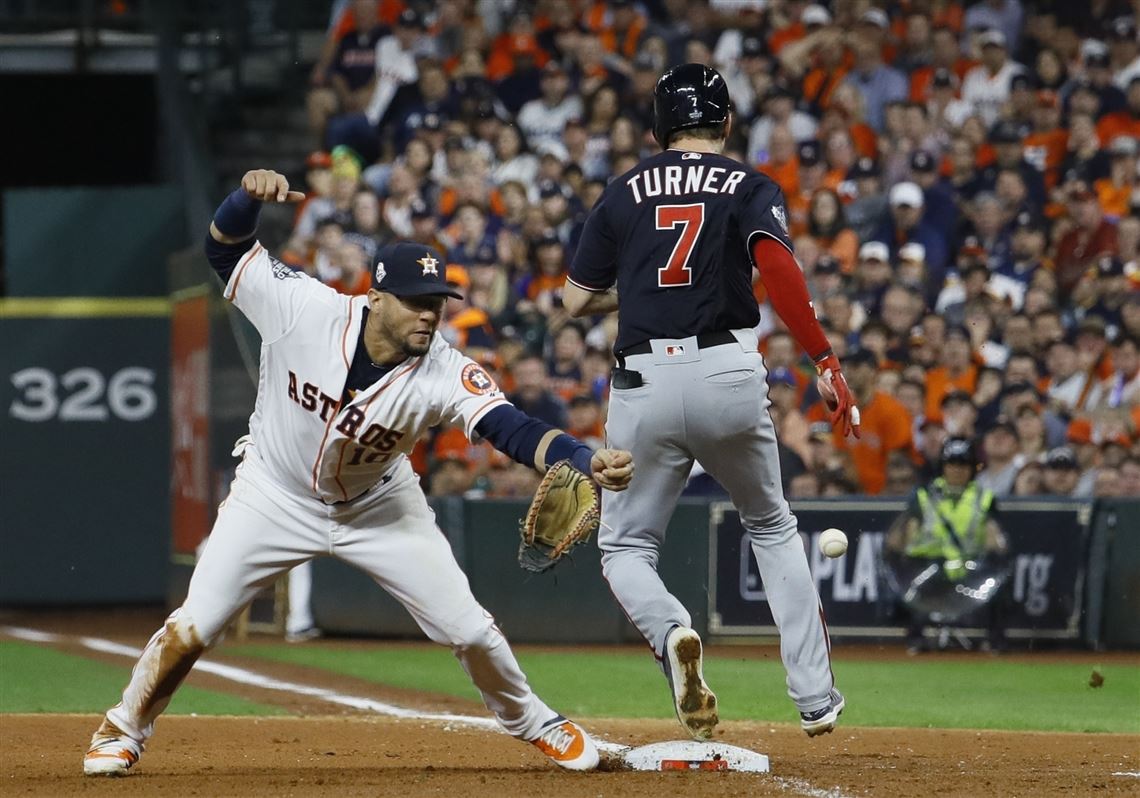
Among the rule modifications for 2024 are alterations to the pitch clock and a broader runner’s lane to first base.
After the league’s Competition Committee voted to impose several new regulations earlier today, Major League Baseball announced that they will take effect for the 2024 season.
The runner’s lane between home plate and first base has been widened, among other adjustments, to enable batters to take a more direct route to the base. The distance between the foul line and the infield turf for the upcoming season will be 18 to 24 inches. Because some teams may be having problems changing their fields because they are using synthetic turf, MLB is granting a grace period. The runner’s lane will still be delineated by a chalked line, but as long as they go from home to first with both feet on the dirt basepath, they will be deemed to be in compliance with the rule.
The interval between pitches with runners on base will also be shortened. We’re going to cut this time down to 18 or 20 seconds. Pitchers won’t be penalized if they walk off during a batter’s at-bat to reset the pitch click twice. If there are no runners on base, the clock stays the same.
The number of mound visits per side per game will be lowered from five to four; however, if a defensive club has no more visits left in the ninth inning, they will still be granted an additional mound visit. Defensive players will now be able to request a mound visit from umpires without having to go to the pitcher’s mound.
When a pitcher enters the warning track after exiting the bullpen with less than two minutes remaining in the inning, the inning break clock will restart at 2:00. The previous reset for the clock was 2:15.
A pitcher must face at least one hitter if they warm up on the mound before the beginning of a new inning. In addition to any prerequisites necessary to comply with the three-batter minimum rule, this regulation also applies. This occurred twenty-four times in the regular season and twice in the World Series, according to MLB.
The pitch clock will now begin after a dead ball when play is ready to continue, rather than when the pitcher holds the ball while it is still on the mound. The purpose of this modification was to stop pitchers from waiting to take the mound after receiving a ball.
Six owners, four players, and one umpire make up the Competition Committee. According to a statement issued by Tony Clark, the executive director of the Major League Baseball Players Association, following the revelation of the new rules, the players on the committee voted against all of the approved rule changes.

In the press statement, Clark said:
“Player Representatives voted this afternoon against the Commissioner’s Office’s proposed amendments to the 2024 rules. Players strongly believe that, in light of the significant modifications to the fundamental rules of the game made last season, immediate additional adjustments are needless and will not significantly improve the game for players, fans, or the competition on the field, as they made clear in the Competition Committee. Our focus will be on gathering more data and thoroughly examining the effects of shortened recovery times on health, safety, and injuries this season.
John Stanton, the chairman of the Seattle Mariners and the chairman of the Competition Committee, also issued a prepared statement regarding the new regulations, stating:
“Since the committee’s founding, players, umpires, and owners have had fruitful discussions that have resulted in rules that have greatly enhanced the game for spectators. These changes will be an improvement over the Competition Committee’s work from the previous year, which was highly successful for the sport and our fans alike. For their commitment to the greatest game ever created, I would want to thank the Major League Umpires, the Players Association, and the Commissioner’s Office.
A rule modification that would have restricted a fielder’s ability to block bases other than home plate was tabled by the committee.
Leave a Reply